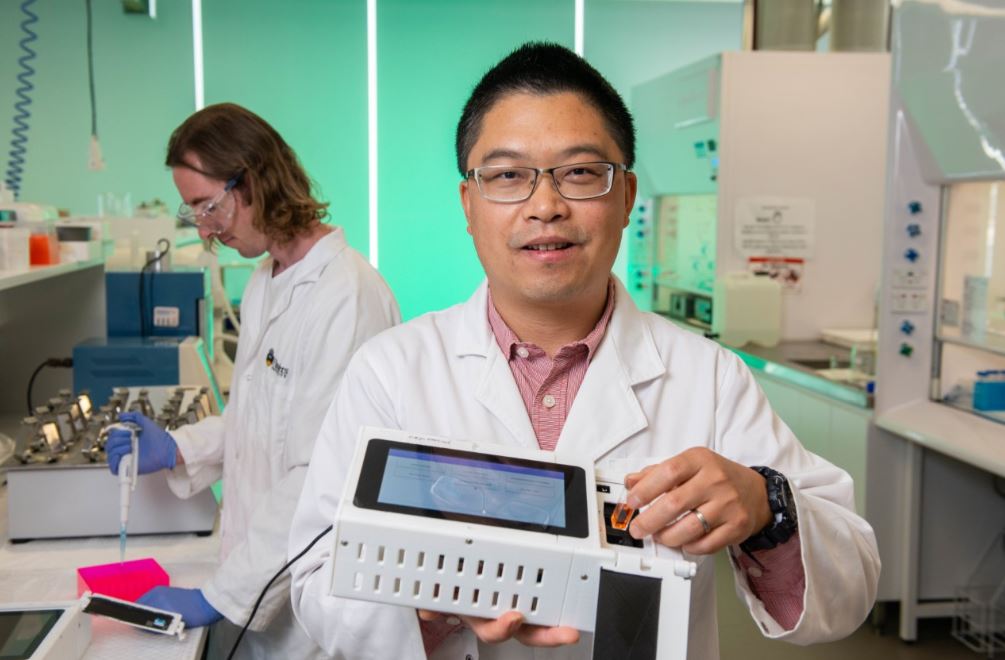
A new portable medical device for monitoring and early detection of chronic kidney disease, which affects an estimated 9% of the world’s population, has been shown to have potential to service rural and remote patients and communities with limited medical services.
The affordable and portable device – designed, constructed and evaluated by Flinders University researchers – can accurately measure levels of albumin in patients’ urine, according to a recent clinical trial conducted at Flinders Medical Centre (FMC), a tertiary teaching hospital in Adelaide, South Australia.
The results, published in Sensing and Bio-Sensing Research (Elsevier), used a 3D printed medical device to accurately measure concentrations of albumin in urine samples via an advanced specified aggregation induced emission (AIE) biosensor.
Elevated albuminuria levels indicate an individual’s kidneys are not filtering blood proteins effectively.
An estimated 1.7 million Australian adults







